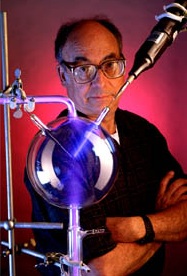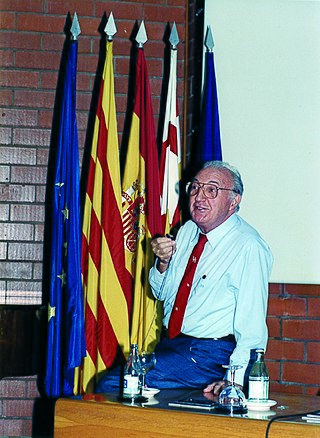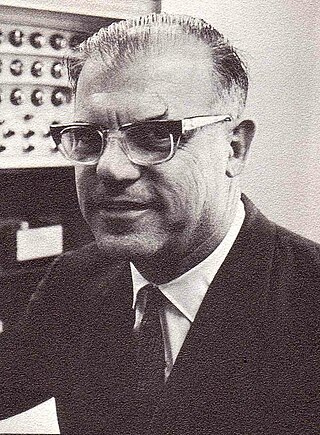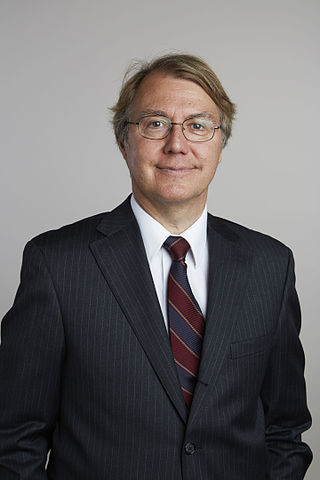
The Miller–Urey experiment (or Miller experiment) was an experiment in chemical synthesis carried out in 1952 that simulated the conditions thought at the time to be present in the atmosphere of the early, prebiotic Earth. It is seen as one of the first successful experiments demonstrating the synthesis of organic compounds from inorganic constituents in an origin of life scenario. The experiment used methane (CH4), ammonia (NH3), hydrogen (H2), in ratio 2:2:1, and water (H2O). Applying an electric arc (the latter simulating lightning) resulted in the production of amino acids.

Stanley Lloyd Miller was an American chemist who made important experiments concerning the origin of life by demonstrating that a wide range of vital organic compounds can be synthesized by fairly simple chemical processes from inorganic substances. In 1952 he performed the Miller–Urey experiment, which showed that complex organic molecules could be synthesised from inorganic precursors. The experiment was widely reported, and provided evidence for the idea that the chemical evolution of the early Earth had caused the natural synthesis of organic compounds from inanimate inorganic molecules.

Harold Clayton Urey was an American physical chemist whose pioneering work on isotopes earned him the Nobel Prize in Chemistry in 1934 for the discovery of deuterium. He played a significant role in the development of the atom bomb, as well as contributing to theories on the development of organic life from non-living matter.
Primordial soup, also known as prebiotic soup, is the hypothetical set of conditions present on the Earth around 3.7 to 4.0 billion years ago. It is an aspect of the heterotrophic theory concerning the origin of life, first proposed by Alexander Oparin in 1924, and J. B. S. Haldane in 1929.

Alexander Ivanovich Oparin was a Soviet biochemist notable for his theories about the origin of life, and for his book The Origin of Life.

Joan Oró i Florensa was a Spanish biochemist, whose research has been of importance in understanding the origin of life. He participated in several NASA missions, including Apollo mission to the Moon and the Viking lander. He received the Oparin Medal, awarded by the International Astrobiology Society for his contributions to the field of origins of life.

Karl Otto Stetter is a German microbiologist and authority on astrobiology. Stetter is an expert on microbial life at high temperatures.

Sidney Walter Fox was a Los Angeles-born biochemist responsible for discoveries on the origins of biological systems. Fox explored the synthesis of amino acids from inorganic molecules, the synthesis of proteinous amino acids and amino acid polymers called "proteinoids" from inorganic molecules and thermal energy, and created what he thought was the world's first protocell out of proteinoids and water. He called these globules "microspheres". Fox believed in the process of abiogenesis where life spontaneously organized itself from the colloquially known "primordial soup;" poolings of various simple organic molecules that existed during the time before life on Earth. He also suggested that his experiments possessed conditions that were similar to those of primordial Earth.

Kliment Arkadievich Timiryazev, sometimes Timiriazev was a Russian Imperial botanist and physiologist and a major proponent of thought of Charles Darwin in Russia. He founded a faculty of vegetable physiology and a laboratory at the Petrovskoye Academy.

Coacervate is an aqueous phase rich in macromolecules such as synthetic polymers, proteins or nucleic acids. It forms through liquid-liquid phase separation (LLPS), leading to a dense phase in thermodynamic equilibrium with a dilute phase. The dispersed droplets of dense phase are also called coacervates, micro-coacervates or coacervate droplets. These structures draw a lot of interest because they form spontaneously from aqueous mixtures and provide stable compartmentalization without the need of a membrane.
James Fraser Kasting is an American geoscientist and Distinguished Professor of Geosciences at Penn State University. Kasting is active in NASA's search for habitable extrasolar planets. He is considered a world leader in the field of planetary habitability, assessing habitable zones around stars. He was elected a member of the National Academy of Sciences in 2018. Kasting also serves on the Advisory Council of METI.
Gerald Francis "Jerry" Joyce is president and professor at the Salk Institute for Biological Studies and was previously the director of the Genomics Institute of the Novartis Research Foundation. He is best known for his work on in vitro evolution, for the discovery of the first DNA enzyme (deoxyribozyme), for his work in discovering potential RNA world ribozymes, and more in general for his work on the origin of life.

Dr.Cyril Andrew Ponnamperuma was a Sri Lankan scientist in the fields of chemical evolution and the origin of life.

Andrew Herbert Knoll is the Fisher Research Professor of Natural History and a Research Professor of Earth and Planetary Sciences at Harvard University. Born in West Reading, Pennsylvania, in 1951, Andrew Knoll graduated from Lehigh University with a Bachelor of Arts in 1973 and received his Ph.D. from Harvard University in 1977 for a dissertation titled "Studies in Archean and Early Proterozoic Paleontology." Knoll taught at Oberlin College for five years before returning to Harvard as a professor in 1982. At Harvard, he serves in the departments of Organismic and Evolutionary Biology and Earth and Planetary Sciences.
Geoffrey Eglinton, FRS was a British chemist and emeritus professor and senior research fellow in earth sciences at the University of Bristol.
Roman A. Zubarev is a professor of medicinal proteomics in the Department of Medical Biochemistry and Biophysics at the Karolinska Institutet. His research focuses on the use of mass spectrometry in biology and medicine.

Sir Alexander Norman Halliday is a British geochemist and academic who is the Founding Dean Emeritus of the Columbia Climate School, and Former Director of the Earth Institute at Columbia University. He joined the Earth Institute in April 2018, after spending more than a decade at the Department of Earth Sciences at the University of Oxford, during which time he was dean of science and engineering. He is also a professor of Earth and Environmental Sciences at Columbia University.
James William Schopf is an American paleobiologist and professor of earth sciences at the University of California Los Angeles. He is also Director of the Center for the Study of Evolution and the Origin of Life, and a member of the Department of Earth and Space Sciences, the Institute of Geophysics and Planetary Physics, and the Molecular Biology Institute at UCLA. He is most well known for his study of Precambrian prokaryotic life in Australia's Apex chert. Schopf has published extensively in the peer reviewed literature about the origins of life on Earth. He is the first to discover Precambrian microfossils in stromatolitic sediments of Australia (1965), South Africa (1966), Russia (1977), India (1978), and China (1984). He served as NASA's principal investigator of lunar samples during 1969–1974.
James "Jim" P. Ferris was an American chemist. He is known for his contributions to the understanding of the origins of life on Earth, specifically by demonstrating a successful mechanism of clay-catalyzed polymerization of RNA, providing further evidence for the RNA World Hypothesis. Additionally, his work in atmospheric photochemistry has illuminated many of the chemical processes which occur in the atmospheres of Jupiter and Saturn's moon, Titan.
The history of research into the origin of life encompasses theories about how life began, from ancient times with the philosophy of Aristotle through to the Miller-Urey experiment in 1952.











